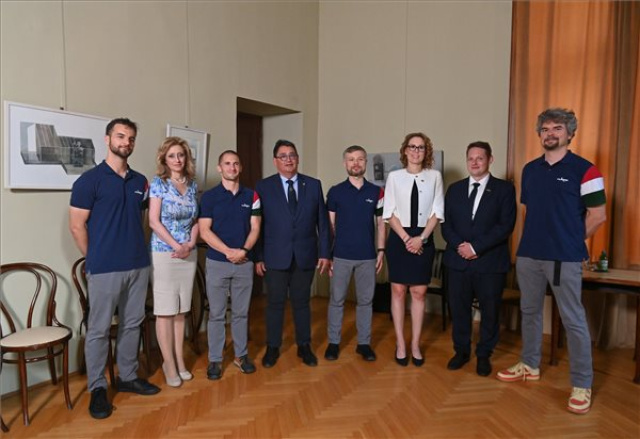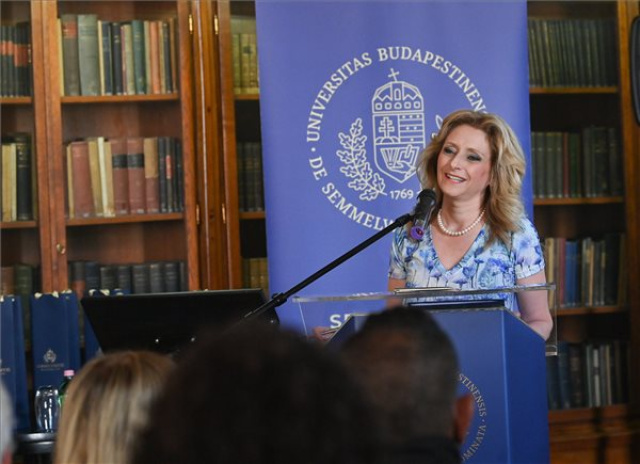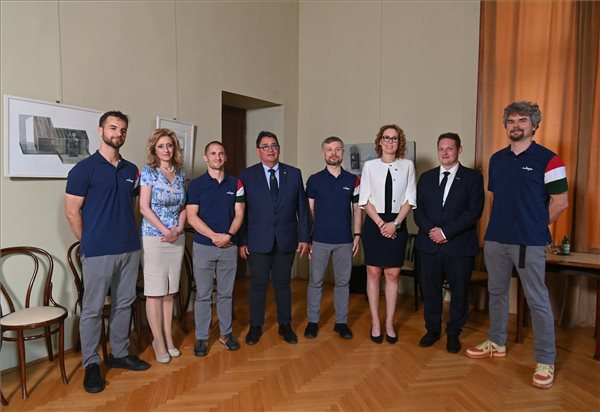Hungary became the seventh country to send a man into space, but decades have passed since the mission of Bertalan Farkas, who personally participated in the conference and called Ursula Ferenc, the ministerial commissioner in charge of space research, in her presentation at the event.
As he added, the Hungarian government adopted the National Space Strategy in 2021, and this year – in cooperation with the European Space Agency (ESA) – the implementation of the HUNOR program also began.
The ministerial commissioner stated that the four candidates astronauts (Gyula Sereni, Tibor Kabu, Udam Schlegel and Andras Zakali) were selected from among 240 applicants, one of whom will be able to participate in the mission starting from late 2024 – early 2025.
Before the conference, Orsolya Ferencz told MTI that the importance of manned spaceflight is huge because the International Space Station is also an important research laboratory. He stressed that getting in here and having time to research was a great value.
If, in a national program, there is an opportunity for HUNOR research sites, universities and companies to implement their own research agenda, it will increase the competitiveness of the entire galactic space sector – he noted, adding: The HUNOR program has already produced research results.
Welcome that the university participates in the selection and training sub-program as the health and research background institution of HUNOR, and leads – develops, coordinates and operates – the medical and health part of the telemetry part of the program research sub.
To monitor the health parameters of the astronauts, the university has developed a complex telemetry system, which will transmit physiological data from the ISS, including EKG, ultrasound, EEG, about the condition of the galactic astronaut. He noted that Semmelweis also trains astronaut candidates in the use of these systems.
According to Bella Merkili, physical training is currently underway, the goal of which is to improve cardiovascular endurance, muscle strength, and neuromuscular coordination, while psychological training prepares candidates for isolation and confinement during long-term space flights.
Candidates now receive special exercises along with a personalized diet. In the meantime, they participate in periodic health assessments, physical, bio-mechanical and psychological tests, and their spiritual support and development of their psychological abilities continues, he said.
As the rector recalls, during the selection of cosmonaut candidates, ophthalmological, dental, otolaryngological, cardiological, psychiatric, psychiatric and gastroenterological examinations were carried out in the institute’s clinics.
In the third stage of the selection process, during technical and scientific professional practice examinations, psychiatrists and psychologists of the University carried out a detailed psychological analysis and assessed the technical and scientific skills of the candidates, and the applicants also received training in telemedicine and resuscitation at the Városmajor Cardiovascular Clinic.
The Foundation and the Department of Aeronautics and Space Medicine, which were established in October 2022, also provided a medical background for special additional examinations, and by the end of the third stage, four astronaut candidates remained in the competition.
Semmelweis University has taken an active part in the complex evaluation of its results and in drawing up the final ranking, which this year begins with the training of selectors according to international standards, says Bella Merkley.
(picture)
(MTI)
Our gallery














































